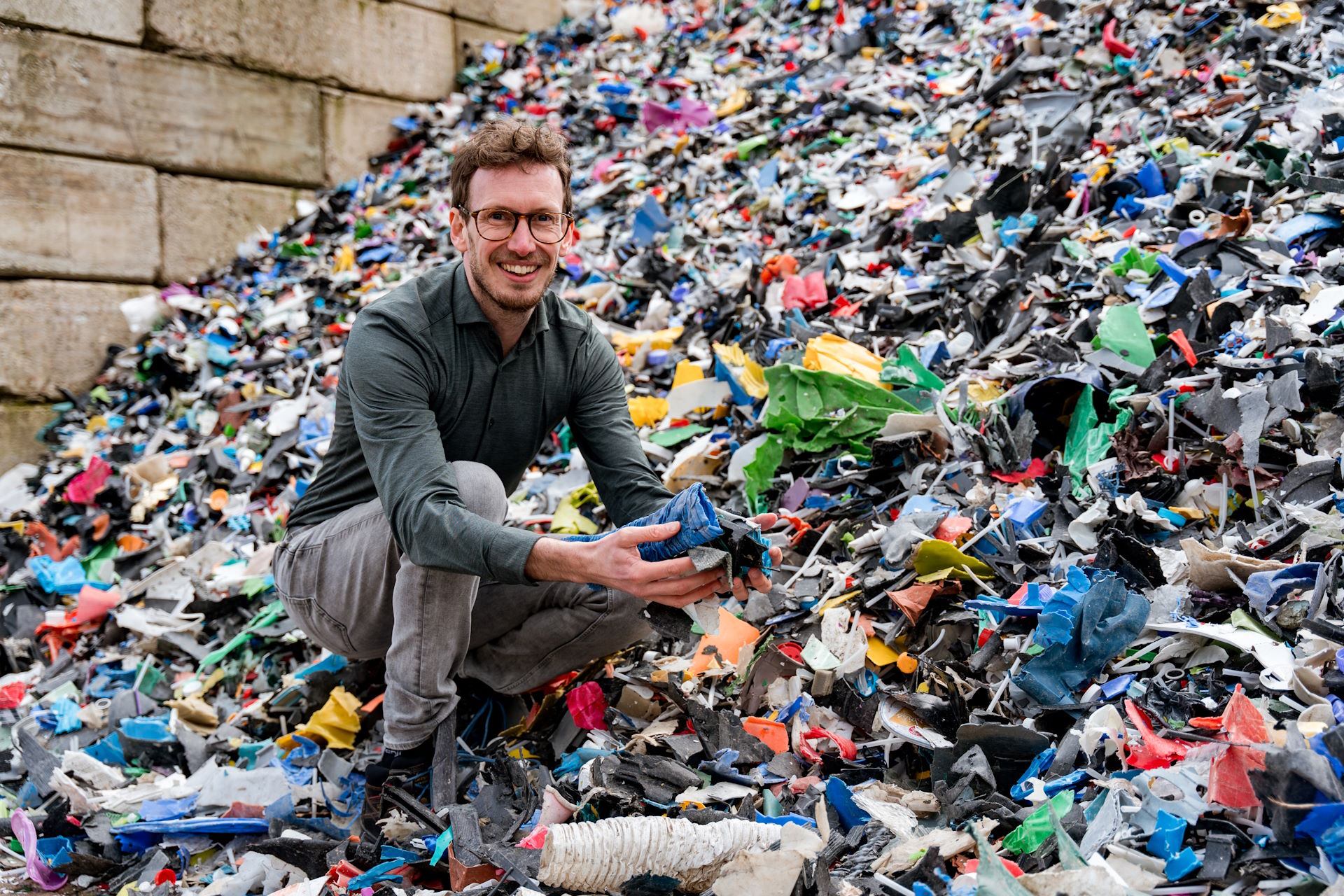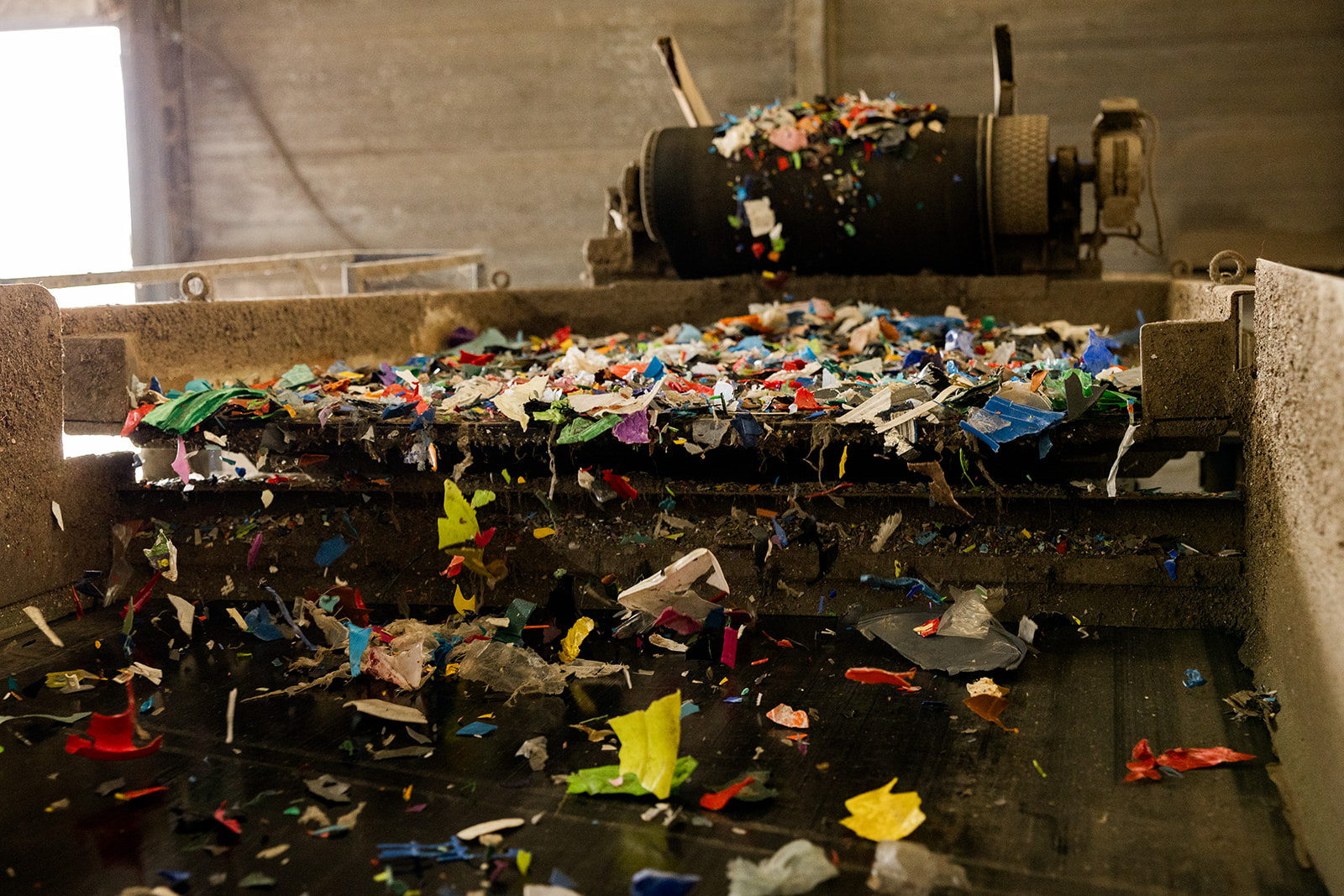


The production and use of materials are responsible for a significant share of global CO2 emissions. A circular economy, where resources are reused and waste is minimized, offers a powerful solution. Yet only 25 percent of the Dutch economy is currently circular. In particular, the recycling of rigid plastics is lagging behind. In the Netherlands, large volumes of rigid plastic are still incinerated, requiring new plastic to be produced from oil. This depletes natural resources and generates substantial CO2 emissions. This Dutch recycling project takes a different approach. Rigid plastics are actually recycled, resulting in significant climate benefits. The project directly contributes to the development of recycling capacity and accelerates the transition to a circular economy. In doing so, it not only avoids emissions but also lays the foundation for more sustainable material use in the future.
Large hard plastic items from construction and household waste are collected at the recycling facility in Biddinghuizen, Flevoland (the Netherlands). The plastic waste is sorted into about twenty types, then washed, cleaned, and shredded into raw materials for high-quality new products. The project operates in a completely circular manner, with even the process water being purified and reused in a closed-loop system. This inspiring Dutch project is open for visits, allowing you to see and experience the tangible impact firsthand!


There are no legal obligations to recycle rigid plastic. It is not covered by extended producer responsibility, which finances the collection and recycling of other types of plastic, such as packaging. That is why ORCA collaborates with this innovative recycling project and manages the entire process from certification to the sale of carbon credits. Thanks to this climate financing, the recycling process remains operational, can be scaled up, and further innovation is possible. The result is more recycled raw materials and lower emissions. The project is certified by the National Carbon Market Foundation. The CO2 reduction is calculated based on an analysis by TNO and independently verified each year by DNV. This ensures fair, high-quality certificates with demonstrable climate impact.
